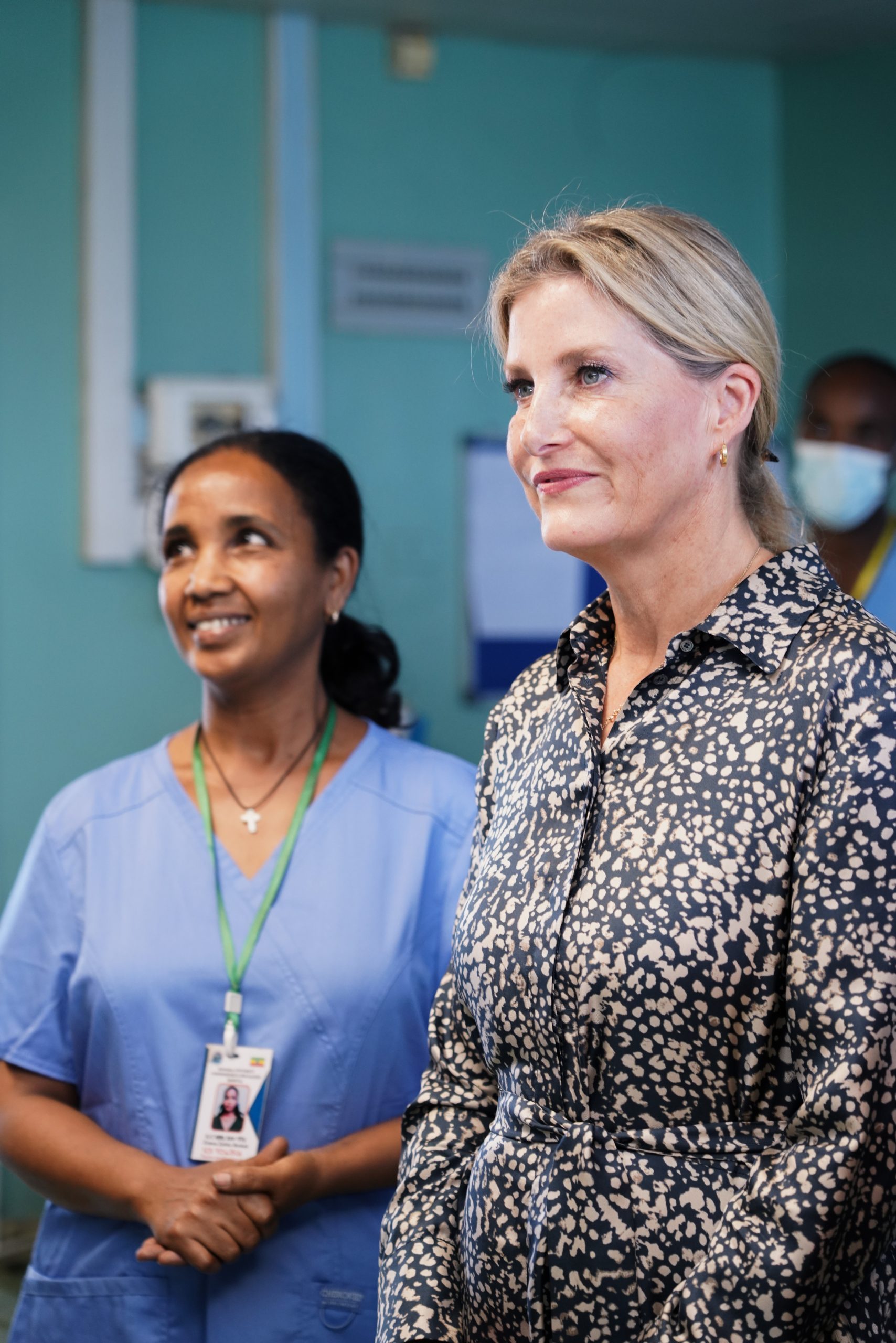Royal visit marks World Sight Day

The Duchess of Edinburgh met head nurse Zemen Beshah at Hawassa Tertiary Eye Care Unit
Eyecare charity Orbis welcomed Sophie, Duchess of Edinburgh, to Ethiopia to highlight the campaign to eradicate trachoma. The infection causes blindness or visual impairment in an estimated 1.9m people worldwide.
On World Sight Day, 12 October, she attended celebrations in Addis Ababa. More than 900 staff at Berhanena Selam Printing Enterprise were given free eye tests.
The Duchess previously met health workers who run screening programmes and treat the condition at a primary eye care unit in Hawassa. Health professionals outlined the challenges, including limited access to clean water and sanitation, and showed how case finders are trained to track down people with the disease.
At a local school she saw how children are screened by teachers for eye conditions and learn about how to protect themselves from trachoma, through eyecare clubs sharing information with plays and songs.
The early stage of the disease is most common in children aged one to nine. It can be treated with antibiotics but repeated infections cause the eyelids to turn inwards, scraping and damaging the surface with every painful blink.
Health professionals at Hawassa Tertiary Eye Care unit demonstrated the simulation training opportunities established by Orbis. Eyecare teams use prosthetics and virtual reality to build their skills and confidence before progressing to real-life surgeries. Simulation training has been proven to cut complication rates, reduce surgical time and improve outcomes.
Women make up 70 per cent of cases in Ethiopia and 70 per cent or more of those receiving surgery for the advanced stage of this condition through Orbis programmes.
The Duchess also attended a conference in Addis Ababa, bringing together over 40 organisations dedicated to the elimination of trachoma. She said: “So much has been achieved both here in Ethiopia and around the world. But now is the time that we must all redouble our efforts if we are to achieve our aim of eliminating trachoma by the year 2030, which is a mere six years away.
“We must not let ourselves become defocused or complacent. We are on the cusp of achieving something almost unimaginable in previous years. Every person involved in this vital work has reason to be so very proud of each and every accomplishment. We are creeping closer to our incredible goal and I urge you all to keep your eyes on the prize and to make this disease so awful that it is worthy of mention in the Bible, a thing of the past and give our communities the gift of sight.”